Responding to Hurricanes Across the United States in 2024
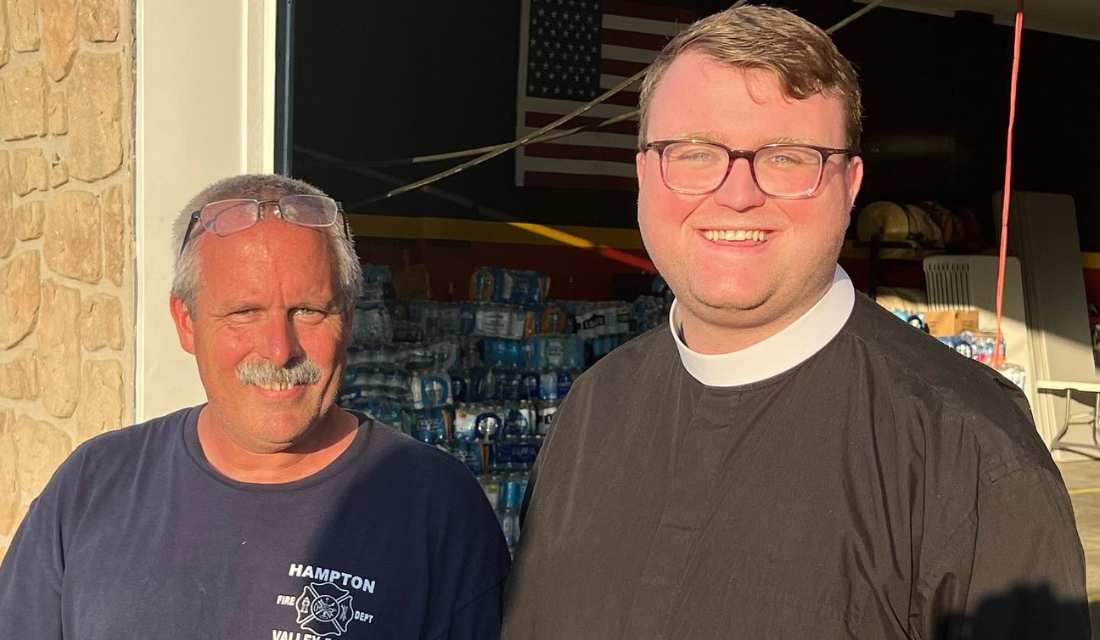
Episcopal Relief & Development is Supporting People in East Tennessee and Central Florida After Helene and Milton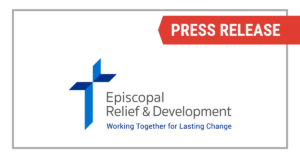
Press Release
October 30, 2024
Episcopal Relief & Development is working with the Episcopal Diocese of Central Florida and the Episcopal Diocese of East Tennessee to support people affected by Hurricane Helene and Hurricane Milton.
In Eastern Tennessee, devastating flooding swept unhoused people’s belongings away and severely damaged under-resourced neighborhoods. The Diocese of East Tennessee is working with Episcopal Relief & Development to support survivors to purchase gas, food and urgent supplies. To address individual needs, the diocese is setting up distribution centers at churches closely located to the hardest hit areas.
In Central Florida, immigrants, refugees, daily wage earners and low income households were impacted by Helene and subsequently Milton. The Diocese of Central Florida is providing hot meals and helping people buy groceries in the aftermath of the storms.
“In parts of Tennessee and Florida, Helene and Milton affected people who live in places that have less resources to help them respond, which exacerbates its impact, and necessitates our response even more,” said Lura Steele, Program Officer, Disaster Risk and Resilience, Episcopal Relief & Development. “Our hearts are with them and Episcopal Relief & Development will continue supporting them in their recovery and resilience.”
Please pray for the people affected by hurricanes, including Helene and Milton. Support to the Hurricane Relief Fund will help survivors to restart their lives with dignity and agency.
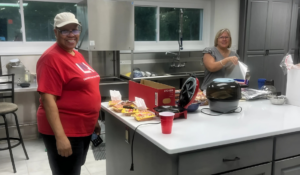
Episcopal Relief & Development is Supporting Immigrant Families in North Carolina After Helene
Press Release
October 23, 2024
Episcopal Relief & Development is working with the Episcopal Diocese of Western North Carolina to support immigrant families after Hurricane Helene caused widespread destruction in late September.
In partnership with Episcopal Relief & Development, the Diocese of Western North Carolina has been able to offer rebuilding support to families living in mobile homes in Brevard, NC and generators, heaters and hygiene supplies to families in Hendersonville, NC and Spruce Pine, NC.
By using an existing relationship between St. Phillip’s Episcopal Church in Brevard, NC and community-based organization El Centro Comunitario Hispano Americano (El Centro Brevard), the diocese is restoring mobile homes that were flooded by Helene. While families wait for their homes to be completed, the diocese is providing temporary housing solutions via local vacation rentals.
Through Trinity Episcopal Church in Spruce Pine and St. Mary’s Chapel in Hendersonville, Episcopal Relief & Development and the Diocese of Western North Carolina Latino Ministry have set up distribution centers for immigrant families. There, they are handing out generators, heaters, diapers, sleeping bags, hygiene products and other items in areas where power remains out.
Episcopal Relief & Development also continues to support the Episcopal Diocese of North Carolina as they care for the people affected by Hurricane Helene both now and in the long term.
“Recovery for people in western North Carolina is still very much in the beginning stages,” said Katie Mears, Senior Technical Specialist, Disaster Risk and Resilience, Episcopal Relief & Development. “While we are working with our church partners to help people with short term needs before the weather starts getting too cold, we are also working with diocesan leaders to make plans to support long-term housing and other recovery support.”
Please pray for the people affected by hurricanes, including Helene. Support to the Hurricane Relief Fund will help people affected by the storms to restart their lives with dignity and agency.
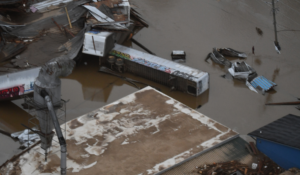
Responding to Hurricanes Milton and Helene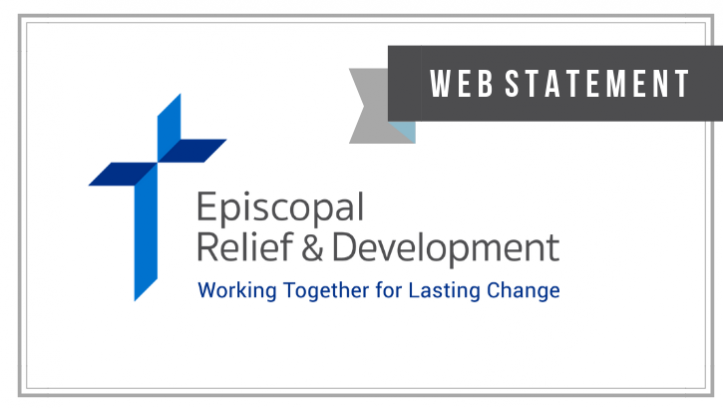
Web Statement
October 10, 2024
Episcopal Relief & Development is in touch with partners in the southeastern US as they meet the needs of people impacted by Hurricane Milton, which made landfall in southwestern Florida on Wednesday, October 9.
Two weeks following the devastating Hurricane Helene, Hurricane Milton has killed at least five people and left over three million people without power. Episcopal Relief & Development is continuing to accompany diocesan leaders as they assess the impact and respond to the needs of their communities over the coming days.
“Our hearts go out to the people who have been affected by Helene and Milton,” said Katie Mears, Senior Technical Specialist, Disaster Risk and Resilience, Episcopal Relief & Development. “We are continuing to work on responses that were already underway due to Helene, and are adapting and creating new plans in collaboration with dioceses to meet new needs.”
Please pray for the people affected by Milton and Helene. Support to the Hurricane Relief Fund will help people affected by the storms to restart their lives with dignity and agency.
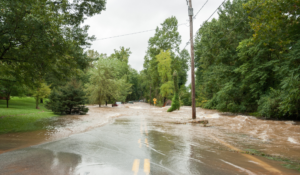
Episcopal Relief & Development Responds to Needs Created by Hurricane Helene
Press Release
October 2, 2024
Following Hurricane Helene, the deadly Category 4 storm that caused widespread damage throughout the southern US, Episcopal Relief & Development is working with church leaders within the Episcopal Diocese of Florida, the Episcopal Diocese of Georgia and the Episcopal Diocese of Southwest Florida to support survivors.
In partnership with the Diocese of Florida, Episcopal Relief & Development is providing gift cards to impacted families in the Apalachee and Santa Fe regions of Florida.
With the Diocese of Southwest Florida, Episcopal Relief & Development is providing gift cards and household items to families in places including St. Petersburg, Tampa, Bradenton, Sarasota and Venice.
Farther north, in partnership with the Diocese of Georgia, Episcopal Relief & Development is providing gift cards and distributing water, food, clothing and fuel to families in need in the cities of Valdosta, Vidalia, Louisville, Augusta and the surrounding areas.
These partnerships will help during the critical first week after impact, before additional support becomes available and longer term needs for debris removal, temporary housing, mental health support and other services can begin.
“Our emergency responses are great examples of doing what we can to help people where they currently are,” said Katie Mears, Senior Technical Specialist, Disaster Risk and Resilience, Episcopal Relief & Development. “As the stages of this disaster progress, people’s needs will change and we are prepared to accommodate them.”
Episcopal Relief & Development also continues to support church and community leaders throughout North Carolina, Tennessee and South Carolina as they assess the impact and determine immediate needs.
Hurricane Helene created life-threatening conditions throughout the South, killing at least 160 people. Homes and other structures were destroyed by mudslides, tornadoes and flooding. In some areas, there are significant communication issues due to a lack of cell service and power outages. Downed trees and other road blockages are preventing supplies from reaching the communities in need. Additional health concerns include a scarcity of potable water.
Please pray for the people affected by Hurricane Helene and consider donating to the Hurricane Relief Fund to support their recovery.
Supporting Communities in the Aftermath of Hurricane Helene
Web Statement
September 30, 2024
Episcopal Relief & Development is in contact with faith-based and community-led organizations in Florida, Georgia, Tennessee, South Carolina and North Carolina that have been impacted by Hurricane Helene, which made landfall in Florida on September 26 as a Category 4 storm.
Rescue operations and other emergency responses are underway in several states after the deadly storm moved north through Florida, Georgia, Tennessee, South Carolina and North Carolina. At least 100 have died as a result of the mudslides, tornadoes, flooding and power outages caused by the storm. As roads are opening, some people are leaving the area to find housing with electricity and potable water, and dioceses in the surrounding area are assessing how they can support these people.
Episcopal Relief & Development remains in communication with the impacted partners and is walking alongside them as they move through the phases of this disaster. During the rescue and relief phases of a disaster, please refrain from traveling to impacted areas or sending unsolicited goods.
“This storm has caused widespread damage to a huge swath of the southern US,” said Katie Mears, Senior Technical Specialist, Disaster Risk and Resilience, Episcopal Relief & Development. “For now, we ask for people who live outside of impacted areas to stay put- the impacted communities are not prepared for in-kind donations or volunteers from out of town at the moment.”
Please pray for their recovery and consider donating to the Hurricane Relief Fund to help provide emergency and long-term recovery support to people affected by Hurricane Helene and other recent disasters.
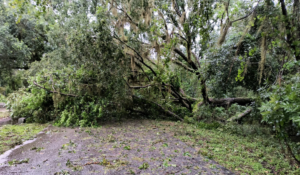
Responding to Hurricane Debby in the United States
Web Statement
August 20, 2024
Episcopal Relief & Development is partnering with Episcopal dioceses along the east coast to respond to immediate needs created by Hurricane Debby that first made landfall in Florida on August 5 before traveling north.
During the week prior to the storm, Episcopal Relief & Development staff reached out to partners in the projected line of impact to consult with them on their preparedness plans. On Monday, August 12, Episcopal Relief & Development held a coordinating call for seven impacted dioceses along the east coast from Florida to Vermont. During the call, they provided expertise on how to respond, referrals to local and government funding and tools, and other support. Since then, staff have been coordinating with individual impacted dioceses to develop responses that use their existing gifts, including ministries and community ties, to meet the needs of their neighbors.
Immediately after a disaster, communities often face subsequent hazardous conditions such as unsafe roads, downed trees, flooding, landslides and even other weather events like tornadoes. Many people who have evacuated are waiting to return, and their lives are ultimately on hold. All are advised to not travel to areas that have recently experienced a disaster, and to refrain from sending items until they have been requested by the affected community.
Episcopal Relief & Development remains in communication with the impacted dioceses and is walking alongside them as they move through the phases of this disaster. Please pray for their recovery and consider donating to the US Disaster Response Fund to help provide emergency and long-term recovery support to people affected by Hurricane Debby and other recent disasters.
For over 80 years, Episcopal Relief & Development has worked with an extensive network of faith and community partners to advance lasting change in communities affected by injustice, poverty, disaster and climate change. Inspired by our faith, we reach over three million people each year by focusing on four interconnected priorities: nurturing the potential of caregivers and young children, reducing violence against women and girls, strengthening communities’ resilience to climate change and facilitating humanitarian response to disasters. Together with our partners, we leverage what’s working well to drive impact, learning and sustainability. Together, we create lasting change. Join us: www.episcopalrelief.org/sign-up


